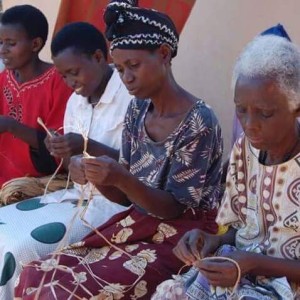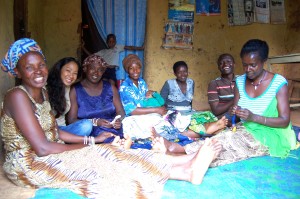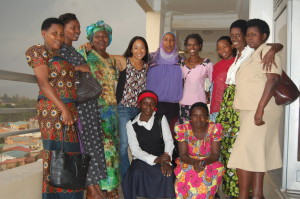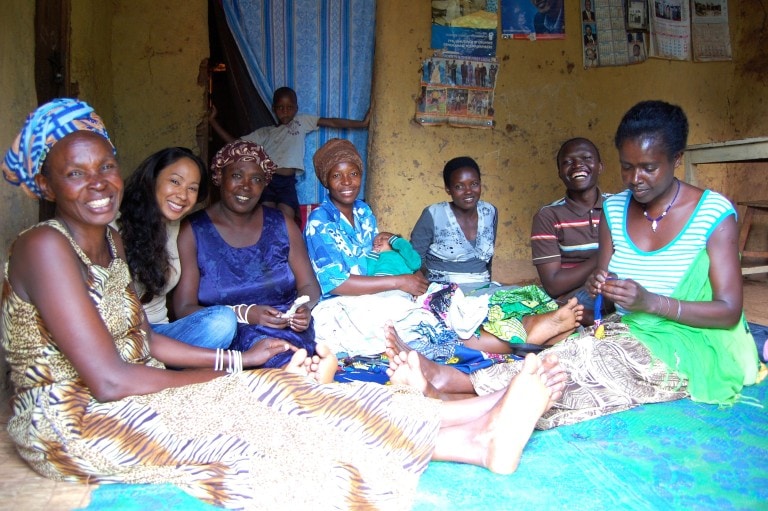by guest blogger Sarah Sternberg
For many producer groups and artisans, getting an order from one of the big retailers is the dream. We wanted to learn more about what it takes to achieve that goal and reached out to our friends at Songa Designs to learn more from founder Sarah Sternberg.

Three years ago I was close to having a meeting with decision makers from one of my favorite stores. At the last minute, my business acquaintance decided not to make the introduction because she learned they were placing orders for a large number of units with extremely tight completion deadlines. One of the challenges to working with larger retailers is that there simply aren’t enough artisans in the cooperative to fill large orders quickly. More importantly, when it comes to handmade products, it is difficult to maintain high product quality if the expectation is that a large order be completed in a short period of time. However, exposure to larger companies did teach me how important it is to have a training process in place to scale up quickly. Our local team constantly searches for new cooperatives that are ready to receive training if an order requires more artisans.
When running a business where the units are handmade and not mass-produced, I need to be very mindful of which orders I commit to. It is a balance between getting the artisans the opportunities to work with large, established companies that may lead to a steady income versus having the infrastructure in place to meet ongoing demand. I understand the retailer’s need to get products to market quickly without sacrificing quality. I also understand the capacity of the women and the intensive training required to produce high-quality designs. It is a time-consuming process that requires extensive logistical planning. For example, the rainy season can affect production because many women walk from far distances to get to their workplace. If the rain comes, many roads can be washed out which makes it difficult for the women to reach their cooperatives.

Training is also essential so that the women have a better understanding of the market they are selling to and the products they are making because they are simply not exposed to it. The first time I showed them a copy of Vogue, for example, their reaction was, “the models need to eat more!” After watching them flip through the magazine and take in the “starving” high-fashion models, I diverted their attention to what the models were wearing. I wanted them to see the quality of the clothing and jewelry that covered the glossy pages. I brought in the magazines after a particularly funny incident. We were showing the artisans how to make oven mitts and automatically assumed they knew what they were used for. When we asked the group to tell us what it was, they said it was a sanitary napkin. While we all burst out laughing, it was a simple reminder that there is a big disconnect between what the women think they are making versus the true functionality of the product. Without this critical knowledge, the women aren’t able to make helpful improvements during the production process.

Songa has been successful because our local team is so strong. I’ve been fortunate to hire experienced country directors who have worked with international retailers. My current director previously worked with the largest retailer in the world, Costco, and is able to apply a lot of his knowledge to Songa’s operations. It’s a constant communication between the US team and the Rwanda team but it works because we are both so committed to creating job opportunities for Rwandan artisans. Another distinct advantage for us is the trust and respect that my team and I have built with the women. We have spent countless hours in the cooperatives, getting to know the women and letting them get to know us. I would say this time investment is one of the biggest advantages we have because the trust we earned from them is such a huge value to our company. Rarely do big companies have the time to cultivate such close relationships with their partner artisans. As in most business partnerships, relationships matter!
My motivation and passion is to connect the artisans with as many viable markets that make sense for them without forfeiting quality. We set expectations with all potential partners up front. If my team and I don’t think we can deliver a quality product within the specified time period, we will pass on the collaboration. Additionally, my team and I constantly revise processes to make operations more efficient so we that save money while producing high quality designs.
Working with large retailers is an awesome opportunity and one that can really launch a business and change the lives of hard-working artisans. However, the decision to do so must be carefully made so that the business doesn’t over promise and then deliver low-quality products. A failed order can do so much more harm to a growing business than being honest about production limitations where product quality suffers.


